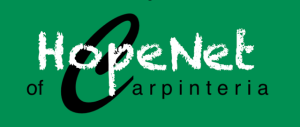Over the course of a lifetime, people experience many instances of grief. How do we handle feelings of grief and pain from the loss of a loved one, or surviving a catastrophe? Especially, when the pain can be so deep it hurts too much to talk about how we feel? Grief makes our heart ache, makes our body weak and vulnerable. As we cope with the devastation in our community, we can grieve together as well as alone.
Following the fires and floods, we will need continued support as we work together to recover. Events of mass destruction can lead to grief, anxiety, anger or fear. Grief is a healthy response, not a disease, and the range of feelings it elicits can vary for each person. Symptoms of grief include crying, questioning the meaning of life, guilt, fatigue and stress, to name a few.
The trauma of our public tragedy has caused us to grieve over mudslides affecting our homes and the tragic loss of lives. The key to staying healthy is to move through the process without becoming too stuck.
When loss is sudden or unexpected, grief reactions can be more complicated. This type of complicated grief can include intense longing or emotional pain, being preoccupied, memories and intrusive thoughts, and difficulty finding meaning. This results from being shocked, stunned or emotionally numb. Untreated, this can result in sleep disturbance, substance abuse, suicidal thoughts/behaviors, immunologic abnormalities and an increased risk of heart disease and cancer.
Scientific studies define and explain some of the stages of grief. We begin with denying the grief through avoidance, confusion, shock or fear. Next is anger, which manifests in anxiety, irritation or frustration. The third stage is bargaining, where we struggle to find meaning or reach out to others. Fourth is depression and feelings of helplessness and being overwhelmed. The final stage is acceptance. In this final stage, we are able to explore other options and move on to a new plan. As we grieve, we may move up and down through the stages.
Counseling is a solid approach to grief. There are support groups, bereavement groups or individual counseling. Crisis counseling and support are available in our community. Individuals can check with their employer’s EAP program or personal physician to get a referral to a behavioral health clinician.
There are several free counseling services being offered that include: 805 Connect, Hospice, County Public Health, as well as a list of therapists offering free and reduced cost services for those directly affected by the catastrophe. These can be found online.
Take time to breathe, refresh and process your feelings. Pushing them away will not make them go away. Grief needs its own time and space to heal. Talk to friends, share with others your experience, connect and volunteer to help others. It’s a united effort we can all participate in.
Deborah Smilovitz Foster, PhD, has a private clinical practice, is a wife and mother, and enjoys playing tennis and spending time in nature. Her column appears monthly in the Coastal View and can be reached at deborahsmilovitzfosterphd@yahoo.com. Dr. Foster serves on the board of HopeNet of Carpinteria (hopenetofcarp.org), whose mission is to improve mental wellness of our residents and to lessen the number of attempted and completed suicides in our community through information, support, training and advocacy.
